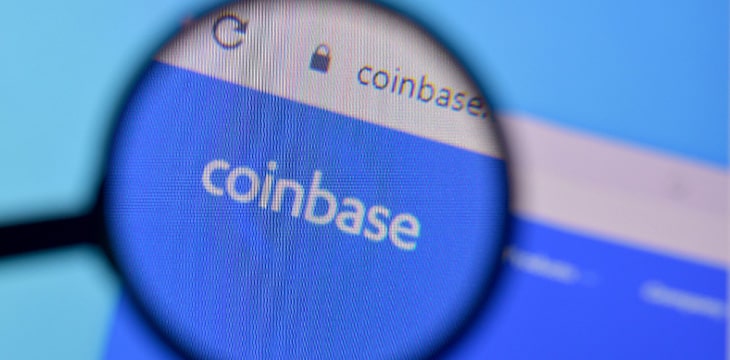|
Getting your Trinity Audio player ready...
|
Over the course of the past few months, we’ve witnessed some of the largest digital currency lending platforms and hedge funds implode. The shocking series of events has left many wondering, “who’s next?” as the dominos continue to fall.
Now, after several worrying red flags, leading exchange Coinbase (NASDAQ: COIN) is allegedly shutting down its U.S. affiliate marketing program. It’s the latest in a series of moves that have some speculating that the exchange is facing its own liquidity crisis.
In the last month, Coinbase combined their USD and USDC markets, closed Coinbase Pro and turned off their affiliate program.
This is after over a year of insiders selling $COIN stock which has absolutely cratered.
I smell a liquidity crisis.
Where’s the money, @coinbase? pic.twitter.com/DuoQcwkjsH
— Kurt Wuckert Jr | GorillaPool.com (@kurtwuckertjr) July 16, 2022
Why is Coinbase shutting down its affiliate marketing program?
The revelation that Coinbase is “temporarily shutting down” its U.S. affiliate marketing campaign came as Business Insider saw leaked emails from inside the company.
According to the report, Coinbase will shut down the program on July 19. The firm supposedly cited “market conditions and the outlook for the rest of 2022” as reasons for its decision. What conditions is Coinbase referring to? An 80% drop in trading volume, massive crashes in the value of digital currencies and other tokens like NFTs, and an ever-tightening regulatory noose no doubt play a role.
Shutting its affiliate program is the latest in a concerning sequence of decisions that signal Coinbase may not be in as strong a financial position as many believe. After laying off 18% of its staff, reporting a massive loss in Q1 2022, adding clauses to its terms of use stating customer assets could be used to pay off debts in the event of bankruptcy, and conflating USDC and USD order books, industry watchers are speculating that the end may be near for what was once the hottest company in ‘crypto.’
Analysis: Play it safe and never believe the ‘crypto bros’
Coinbase users who have funds on the exchange are quite rightly debating what to do right now. While some brush off the idea that the firm might be insolvent, recent events tell us that this false sense of confidence can be fatal. When the same rumors began to swirl about Celsius Network and Voyager Digital, users in denial or those who didn’t connect all of the dots dismissed them. That proved to be a costly mistake.
In these situations, it’s always best to play defense. Firms like Coinbase do not take the actions they have in the last few months for no reason. While they could be simply taking prudent action and reducing costs to ride out the digital currency winter, they could also be preparing for something only insiders can see. There’s no way to tell, and so playing defense until the view becomes clearer is the only sensible decision.
Likewise, reassurances from Brian Armstrong and his team should do nothing to dissuade you from selling your digital currencies and/or moving them off the exchange immediately. After all, Alex Mashinsky, the embattled CEO of Celsius Network, took to Twitter to deny rumors of the company’s problems honoring withdrawals just hours before it suspended them. You simply can’t trust vested interests in this industry, and so any reassurances from Coinbase should be taken with a pinch of salt.
Whatever way you look at it, the smart move is to interpret Coinbase’s actions as a sign that something isn’t right and get out ahead of the potential tsunami of withdrawal requests that may soon follow. In the best-case scenario, nothing happens, Coinbase is fine, and you have custody of your own digital assets. In the worst-case scenario, you ignore the red flags, Coinbase goes under, and you lose everything like too many others have in recent weeks and months.
Follow CoinGeek’s Crypto Crime Cartel series, which delves into the stream of groups from BitMEX to Binance, Bitcoin.com, Blockstream, ShapeShift, Coinbase, Ripple,
Ethereum, FTX and Tether—who have co-opted the digital asset revolution and turned the industry into a minefield for naïve (and even experienced) players in the market.

 03-01-2026
03-01-2026 




